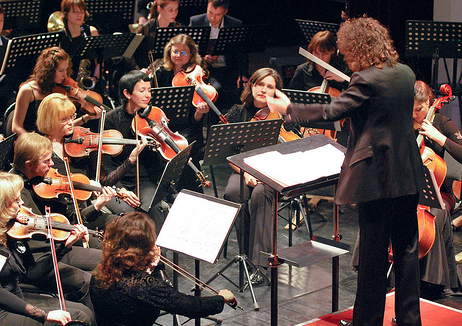Love of musical harmony is not nature but nurture

Our love of music and appreciation of musical harmony is learnt and not based on natural ability – a new study by University of Melbourne researchers has found.
Associate Professor Neil McLachlan from the Melbourne School of Psychological Sciences said previous theories about how we appreciate music were based on the physical properties of sound, the ear itself and an innate ability to hear harmony.
"Our study shows that musical harmony can be learnt and it is a matter of training the brain to hear the sounds," Associate Professor McLachlan said.
"So if you thought that the music of some exotic culture (or Jazz) sounded like the wailing of cats, it's simply because you haven't learnt to listen by their rules."
The researchers used 66 volunteers with a range of musical training and tested their ability to hear combinations of notes to determine if they found the combinations familiar or pleasing.
"What we found was that people needed to be familiar with sounds created by combinations of notes before they could hear the individual notes. If they couldn't find the notes they found the sound dissonant or unpleasant," he said.
"This finding overturns centuries of theories that physical properties of the ear determine what we find appealing."
Coauthor on the study Associate Professor Sarah Wilson also from the Melbourne School of Psychological Sciences said the study found that trained musicians were much more sensitive to dissonance than non-musicians.
"When they couldn't find the note, the musicians reported that the sounds were unpleasant, whereas non-musicians were much less sensitive," Assoc. Prof Wilson said.
"This highlights the importance of training the brain to like particular variations of combinations of sounds like those found in jazz or rock."
Depending on their training, a strange chord or a gong sound was accurately pitched and pleasant to some musicians, but impossible to pitch and very unpleasant to others.
"This showed us that even the ability to hear a musical pitch (or note) is learnt," Assoc. Prof Wilson said.
To confirm this finding they trained 19 non-musicians to find the pitches of a random selection of western chords. Not only did the participants ability to hear notes improve rapidly over ten short sessions, afterward they reported that the chords they had learnt sounded more pleasant – regardless of how the chords were tuned.
The question of why some combinations of musical notes are heard as pleasant or unpleasant has long been debated.
"We have shown in this study that for music, beauty is in the brain of the beholder," Assoc. Prof McLachlan said.
The study was published in the Journal of Experimental Psychology: General.












